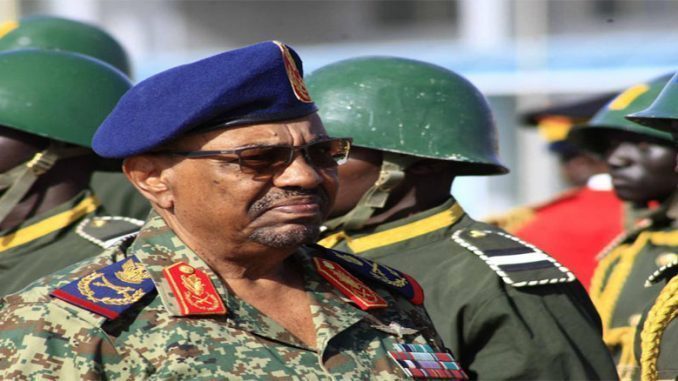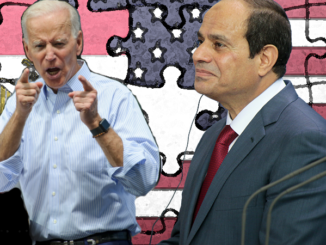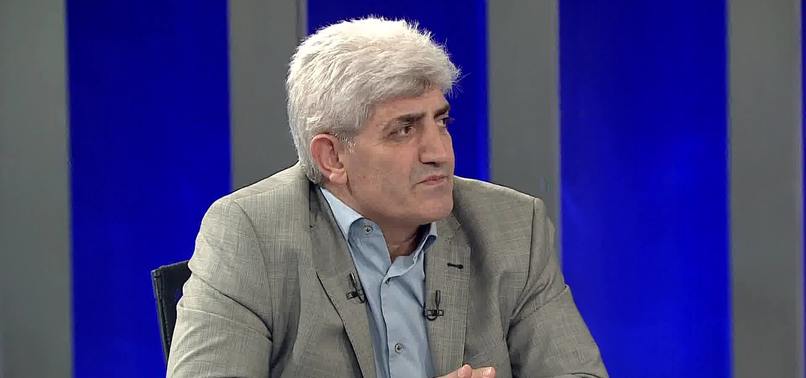
U.S. President Donald Trump Tuesday has delayed the lift of economic sanctions on Sudan for a three-month period until next October saying more time is needed to appreciate the permanent revocation of the 20-year embargo.
On 13 January, former President Barack Obama decided to cancel permanently the sanctions on Sudan but delayed the implementation of the decision for a six-month period to encourage Khartoum to take further actions on the resolution of armed conflict and other political processes aiming to restore freedoms in Sudan.
Based on the assessment done by an interagency team led by the State Department, President Trump has to decide on 12 July on whether Khartoum implemented the five-track plan negotiated with the Sudanese government. He has the choice between approving the lift of sanctions or reinstating the sanctions considering that Khartoum failed to meet the agreed deal.
In a short executive order released late on Tuesday night, President Trump decided to amend the decision of the former President Obama by “striking “July 12, 2017” and inserting in lieu thereof “October 12”.
The order said the delay is needed to better assess the “policies and actions of the Government of Sudan, including additional fact-finding and a more comprehensive analysis of the Government of Sudan’s actions”.
Different reports mentioned the lack of consensus between the White House and the State Department over lift of the sanctions on Sudan and the growing opposition in the Congress. 53 U.S. lawmakers have recently urged President Trump to delay the permanent lifting of U.S. sanctions on Sudan.
“Several people familiar with the discussions told the Financial Times that the state Department and the National Security Council at the White House were split over what to do and that the decision would come down to a “nail-biter”,” said the Financial Times on Tuesday.
The State Department was advocating that the soft approach is more productive than the tough regime of sanctions imposed in 1997 and its additional sanctions of 2006. The American diplomats said the lift of economic embargo can better help to bring the regime of President Omer al-Bashir achieve peace and democratic reforms but also cooperate in the fight against terrorism and join regional alliances. They further pointed to the other remaining sanctions saying they can be used to convince Khartoum to implement political reform.
Human rights groups and activists called to postpone the permanent repeal at least for six months and to add a new track for the human rights in Sudan. However, they remain silent over the peace process because of the internal divisions among opposition forces.
Sudan’s Foreign Minister Ibrahim Ghandour Monday said that any decision other than the permanent lift of sanctions is “illogical and unaccepted”, pointing that Sudan has met all commitments towards five-track engagement plan.
Yasir Arman the Secretary General of the rebel Sudan People’s Liberation Movement-North led by Malik Agar (SPLMN-Agar) welcomed the decision saying it “is a victory for justice and the innocent people of Sudan”.
“Today victims, human rights defenders, displaced persons and those who are denied their right to humanitarian access among others will receive with joy President Trump’s decision to delay the lifting of sanctions on Sudan,’’ Arman said.
“We thank all those who have been clear on the political situation in Sudan and they were mindful of genocide and war crimes continuously being committed by the Sudan government,” he further added.
For his part, the Founding Director of the Enough Project John Prendergast praised the three-month delay and called for a new track of engagement with Sudanese government “that is focused on addressing the core issues that keep Sudan in perpetual crisis and kleptocracy”.
“This new track should be tied to a new set of smart, modernised sanctions that spare the Sudanese public and target those who are most responsible for grand corruption and atrocities,” Prendergast further said.
Omer Ismail, Project Senior Adviser at Enough Project said that “Washington and Europe have powerful leverage they can wield to change the calculations of Sudan’s corrupt and brutal rulers, by implementing a modernized program of network sanctions and financial pressures.”



